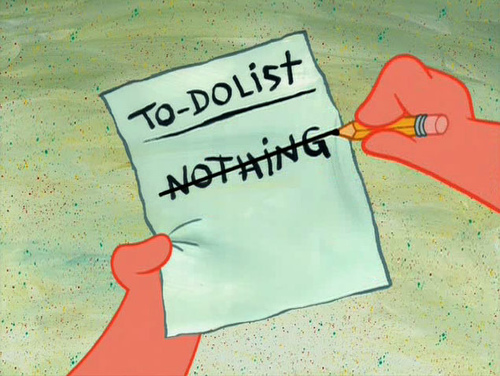Today there is nothing urgent and important that must be done. And I can procrastinate about the things that are less urgent and less important. So I am free FROM the immediate call of duty – from the need to be DOING – from busy-ness. So what am I free FOR? Logic suggests BEING – still-ness.
To slightly misquote Matthew 7:16 – “By their actions shall ye know them.” In reckoning what another person values note what they DO rather than what they SAY. The same principle applies to myself. I can tell what I value by noting how I spend my time.
It pleases me to think that I have cut back on ‘doing’ and that I give most of my time to ‘being’. But in fact, most of the time, I am doing being. The ultimate and ancient goal is to “know yourself” and there are many cultural variations on what this might mean.
In the Christian tradition your true self is God within. St Augustine reckoned that, “if you love God enough you may do as you please”. I see this as an existential cop out that has justified the brutal inquisition and the murderous crusades. The metaphor is of an omnipotent and transcendent father figure who works in mysterious ways. Supernatural myth and mumbo jumbo!
In the modern secular West there is the concept of the ‘self’ linked to the psyche or soul which is rooted in the unconscious. Many people have a shaky sense of self because of ineffective parenting. They thus have problems adapting to their socio-cultural environment. Talking about it helps to build a more robust self. The talking cure ranges from chat with your granny, through counseling and psychotherapy to psychiatry. R D Laing was part of the anti psychiatry movement and reckoned that insanity was “a perfectly rational adjustment to an insane world”.
In Buddhism there is the concept of no-self. The underlying dynamic is caught in the short slogan, “No self, no problem.” There is suffering because people believe that they have an abiding self. Those who make time for quiet and peaceful sitting become mindful of the illusory nature of the ‘self’ and therefore go beyond suffering. Thich Nhat Hahn recommends ‘being peace’.
Over the last 20 years there have been major discoveries in neuroscience and in evolutionary psychology. Neuroscience has been unpacking the ancient concept of consciousness. Mind and brain are two ways of looking at the same thing. The thoughts and feelings that appear in the conscious attention centre are the tiny tip of the iceberg which is the vast and dynamic unconscious. The brain is modular with complex links between modules. ‘Mind’ is an ongoing process which matches incoming sensory data with what went before and thus generates behavior appropriate for survival. This explains the meditator’s feeling that the mind has a mind of its own.
Evolutionary psychology is rooted in the idea that the brain and its mind modules evolved to cope with physical and socio-cultural survival problems. Many of the adaptations evolved during our 190,000 years as hunters and gatherers. Latterly evolution was via memes rather than genes.
SO – my action has been to write about intellectual themes. This is a familiar activity and was managed in flow as peaceful and effortless action in a state of no-self - there was no awareness of place nor of clock time. I obviously value this writing process as I spend a lot of time at it.
Do other people that I know get into that state? I will have to pay more attention in future.


No comments:
Post a Comment